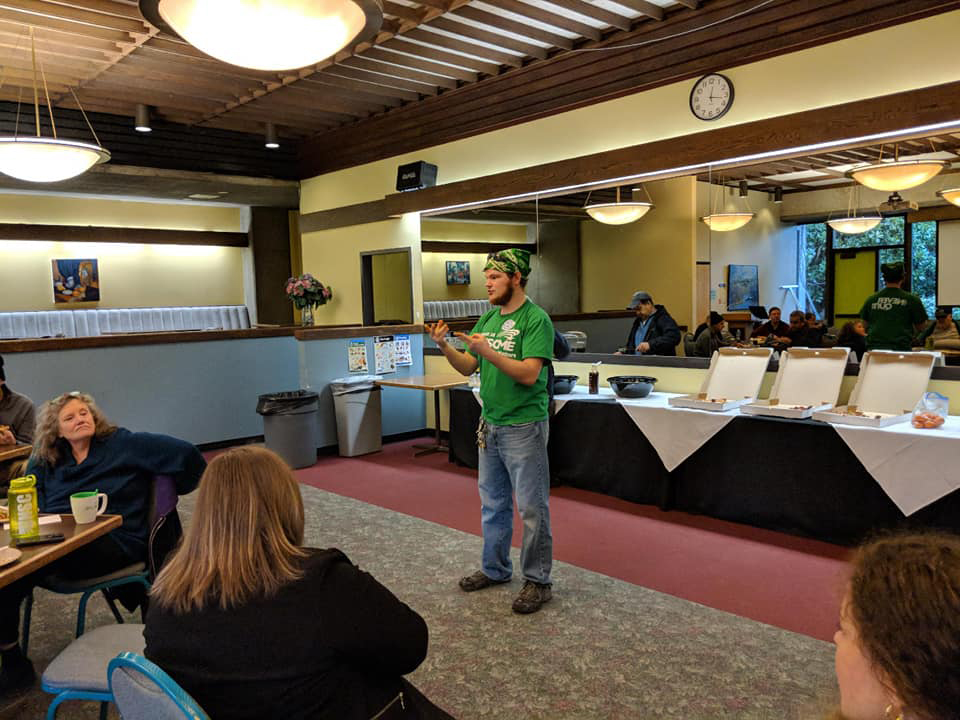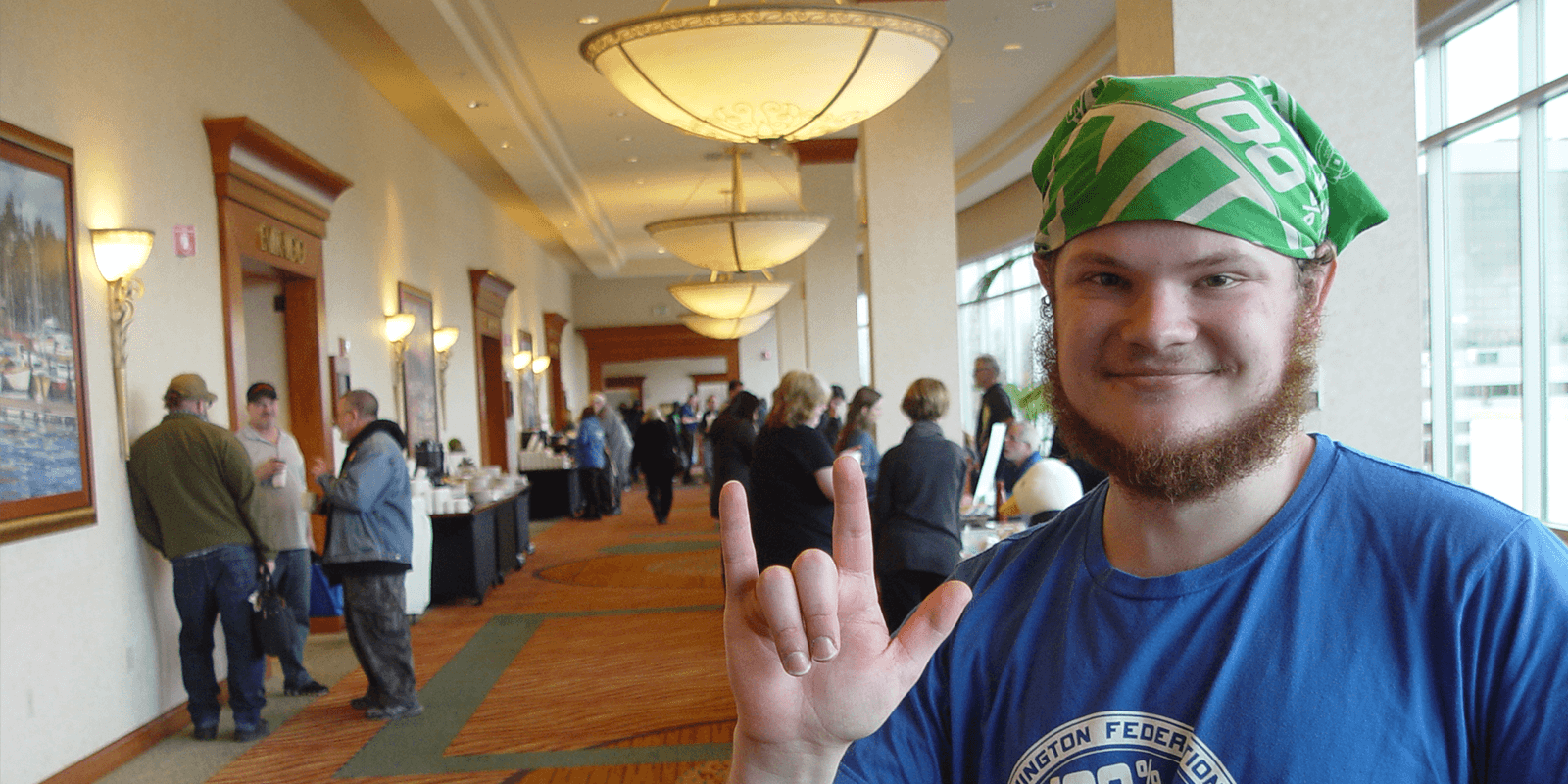
Tommy Fuglestad is a dedicated state employee and passionate union member. As a groundskeeper for the past 2 ½ years at North Seattle College, he wants “to make sure that everything looks good.”
As a relatively new member of AFSCME Local 304 (Washington Federation of State Employees, Council 28), he’s already made a difference representing his members as a delegate to the 2017 WFSE/AFSCME Convention held last fall.
In November, the union’s Higher Education Policy Committee elected Fuglestad to one of the committee’s 15 allotted seats on the WFSE/AFSCME Executive Board.
In late February, he got down to business when the board met for its first session of a two-year term that could see a sea change depending on how the U.S. Supreme Court rules on the Janus v. AFSCME case.
In between, Fuglestad embraced the drive to move legislation in Olympia to increase affordable housing options for state workers in high-cost areas of the state. He took part on Martin Luther King Day Lobby Day and later testified on behalf of an affordable housing bill. The bill didn’t pass in 2018 but he intends to try again in 2019.
He is also one of the youngest union board members and member leaders WFSE/AFSCME has ever seen.
The rest of his story: Fuglestad is deaf.
“I prefer to be called deaf,” Fuglestad said. “Deaf is my primary identity. I believe I’m the first person in the history of the Executive Board to be a deaf person.”
“Deaf people and hard-of-hearing folks – there’s usually just one of us but they typically can inspire all of the rest of the members,” he said. “You can say something to the general population and be representative for what other people are feeling or going through and encourage other people to be motivated and think about what they can do as well.”
Fuglestad got his first experience of what WFSE members can do when, after high school, he attended what is now known as the Center for Childhood Deafness and Hearing Loss in Vancouver (formerly called the State School for the Deaf). He saw Local 1225 members standing up for a fair contract.
He got job training as a groundskeeper, and in September 2015 started working at the Seattle College District.
Thanks to Local 304 mentors Rodolfo Franco and Amy Lazerte, Fuglestad stepped up and got involved to make a difference on such issues as fair pay and inequality.
Fuglestad says as a deaf person, he’s faced challenges when it comes to inclusion and fair treatment.
There have been times, he says, when “I was treated as someone who was not equal. For example, some people may always be trying to take advantage of me as a person with a disability in certain situations.”
But instead of emphasizing the times he’s been treated poorly, Fuglestad wears an armor of empathy and stands up for others who face mistreatment because of a perceived disability.
His election to the governing board of the largest union for the largest employer in the state of Washington (state agencies, colleges and universities) sends a strong message about who Fuglestad is and who we are as a union.
“I’m willing to fight for equality, especially for people with disabilities and to promote diversity issues so that we can all learn to respect each other,” Fuglestad says. “Anyone who experiences bullying or discrimination or any kind of inequality, that’s what I’m trying to address.”
“The union is a good way” to address these and other challenges, he says.
Fuglestad is committed to the principle that public employees should all be “100% Union Proud” and sign a “100% Union” card. It’s the best defense against a likely adverse Janus ruling.
“The union has really added to my life because personally it’s given me a way to be involved, something to do to really fight for equality,” he said. “Equality’s a big issue and just respecting each other and fighting for our rights. I’m more than willing to do that.”

Photo Credit: AFSCME Council 28
